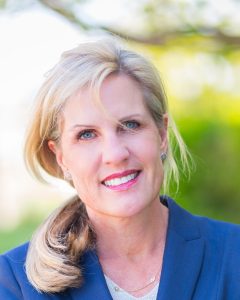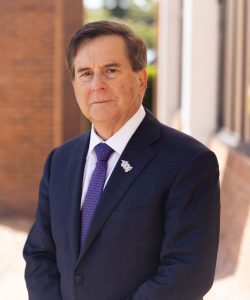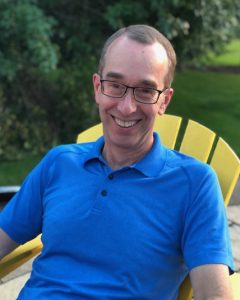ABR Trustee Catheryn Yashar, MD, was voted president-elect by the membership of the American Society for Radiation Oncology (ASTRO) in July. She will begin her term during the organization’s annual meeting next month and will become president in September 2026.

Dr. Yashar is a professor of radiation medicine and applied sciences at the University of California, San Diego (UCSD), where she also serves as chief medical officer and associate dean for UCSD Health. She specializes in brachytherapy and treating patients with breast and gynecologic cancers. A nationally recognized expert in health policy and economics, she serves on ASTRO’s board as health policy council chair.
“I am deeply committed to cultivating an environment that champions research, innovation, and the freedom to explore new approaches to improving tumor control while minimizing toxicities,” she said. “It is equally important that ASTRO continues to offer robust educational opportunities to address knowledge gaps among physicians, communities, and patients, and to promote technologies that support consistent, high-quality care.”
Dr. Yashar, who became an ABR Trustee in 2020, is past president of the American Brachytherapy Society and former vice chair of the Uterine and Cervical Cancer Panel for the National Cancer Comprehensive Network. She has served on the editorial boards of ASTRO’s three journals and as CPT advisor to the ASTRO society.
ASTRO’s board represents the medical society’s 10,000 members, including physicians, medical physicists, biologists, radiation therapists, and other professionals who treat patients for cancer and other diseases using radiation therapies.
Marc Mendonca, PhD, learned a lot in his more than 20 years as an ABR volunteer. One of his biggest takeaways was that even the best physicians, biologists, and physicists require time to learn how to create relevant exam questions.
Even longtime question writers can occasionally struggle.
“I love the fact that these are some of the top people in the field,” he said. “You’re all in the room trying to help write a good exam. What I kept learning over and over is how hard it is to write a really good question. It really takes skill.”

Dr. Mendonca, who has served as the editor in chief of the journal Radiation Research since 2011, was a question writer for the biology section of the Radiation Oncology Qualifying Exam during his most recent volunteer assignment. Brian Marples, PhD, that committee’s chair, said his colleague was an excellent contributor.
“His extensive expertise in both radiobiology and cancer biology have been invaluable to the ABR,” Dr. Marples said. “The committee will collectively miss his vast and extensive radiobiology knowledge, his humor, and his fairness and balance. He has left big shoes to fill. His contribution to the radiation oncology radiation and cancer biology committee have benefited resident education over many years.”
There are many positives about being an ABR volunteer. Making connections with peers from across the country is a big benefit.
“You get to meet excellent people,” he said. “You develop that closeness that’s unique to a committee like that. You’re trying to do something that’s hard, but you’re sitting there and having fun.”
Dr. Mendonca said the work can be enjoyable. He remembers having then-ABR Executive Director Val Jackson, MD, walk in on one of his committees to ask what was going on after hearing the members laughing and joking as they finalized an exam.
Being a volunteer has responsibilities outside the meeting rooms. When their colleagues know they are on an ABR committee, members can sometimes become lightning rods for criticism. Dr. Mendonca always has a reply.
“When people complained to me about the exam, I would tell them that they should volunteer and be a question writer,” he said. “After about one or two cycles, they’re very humbled by how hard the work is.”
Knowing that his ABR service time wouldn’t last forever, one of Dr. Mendonca’s goals was to encourage a new generation of peers to get involved. Radiation biology is a small field, making it a challenge to find participants who can give up some of their free time. Committee members often must put on their recruiting hats.
The payoff comes when those newer members step up and take leadership roles that their more experienced peers have traditionally filled.
“As I was going through my last cycle, the younger volunteers were starting to speak up and have fun,” he said. “And I thought, ‘OK, that’s good.’”
After 30 years at the University of Indiana School of Medicine, Dr. Mendonca recently made a career change, becoming associate vice president for research and scholarship at the University of Central Florida (UCF). He will oversee the university’s internal research initiatives and funding programs, as well as the office of research’s centers and institutes.
Just like his ABR volunteer duties, he sees the UCF job as a chance to provide guidance and assist others.
“I had a very good career (at Indiana), but I wanted to continue to help others be successful,” Dr. Mendonca said. “This is what this job is — to help faculty and the colleges develop their research skillsets and portfolios.”
Looking back on his time as a volunteer, Dr. Mendonca takes satisfaction in giving back to his field. Developing rigorous exams helps ensure that his profession thrives and patients are treated safely.
“To me, it was just about service,” he said. “It was about making sure that we put out a good exam.”
After almost two decades as an ABR volunteer, Trustee Chrisopher Wood, MD, said that one of the more satisfying aspects of his role is the positive feedback he receives from other ABR volunteers.
It happened most recently at the American Society for Neuroradiology annual meeting in Philadelphia this past May. A current volunteer approached him to say how much he enjoyed serving on a question-writing committee thanks to Dr. Wood’s involvement and leadership.
“He said, ‘You’ve done such a fantastic job, and I really enjoyed working with you. We have a wonderful team, and you really helped engage us,’” said Dr. Wood, a professor of radiology at the Mayo Clinic in Rochester, Minnesota. “It was truly kind. I will miss that feeling of helping make things better for people at the ABR.”

Dr. Wood’s term on the Board of Trustees as the neuroradiology Trustee ends in October, reducing his activities as an ABR volunteer; he hopes to be an examiner for the New Diagnostic Radiology Oral Exam in 2028. He started volunteering in 2006 at the urging of luminaries from the diagnostic neuroradiology world, including Hugh Curtin, MD; Glenn Forbes, MD; Vince Mathews, MD; and Robert Zimmerman, MD. On the recommendation of Dr. Forbes, who had trained him as a neuroradiology fellow, Dr. Wood’s first ABR volunteer experience was the privilege of working with Dr. Curtin as part of a neuroradiology committee involved in validating questions using the nationally recognized Angoff process. He remembers Dr. Curtin as humble, even-keeled, inclusive, and very knowledgeable.
Dr. Wood started as an exam question writer for Dr. Zimmerman’s Maintenance of Certification committee in early 2010. Later that year, Dr. Zimmerman, who cared deeply about the ABR’s mission but was not quick to hand out compliments, took the time to acknowledge his younger colleague as an excellent volunteer.
“He said, ‘Yeah, Forbes was right about you. You are a good addition to the team. You’re conscientious, write good questions, deliver ahead of schedule, and you’re pleasant to work with,’” Dr. Wood said.
After a few years, Dr. Wood became chair of the Neuroradiology Certifying and Subspecialty Exam Development Committee when Dr. Zimmerman rotated off. He still recalls the challenge of assembling the annual certifying exams and separate subspecialty exams during in-person meetings with many national leaders, including Eric Russell, MD, and Jeff Ross, MD. Dr. Wood remembers tactfully balancing the group’s various opinions and discussions during question reviews to determine whether to accept a question, make minor revisions, or work on a question offline later while staying on schedule.
“I was a high school and small college competitive long-distance runner, which required staying on pace during training,” he said. “So, I would mention this analogy of staying on pace to help the committee finish on time, which we always achieved.”
Dr. Wood later became a diagnostic radiology oral board examiner and had both Drs. Mathews and Zimmerman as mentors.
Proving that he was a valuable volunteer and leader, Dr. Wood was chosen as a Trustee in 2017. Finding time for his increased responsibilities was challenging as his administrative workload at Mayo also increased during this same period. He said that Stephen Covey’s book “The Seven Habits of Highly Effective People” was extremely helpful in finding the right balance in life.
“If you don’t manage your schedule, your schedule will manage you,” he said. “But I did have to work a lot of evenings and weekends.”
Mimi Newell, MD, the ABR’s associate executive director for diagnostic radiology, worked with Dr. Wood for many years, including as a fellow Trustee. She said she was always impressed by Dr. Wood’s willingness to listen to others’ perspectives.
“Chris has been an excellent Trustee,” Dr. Newell said. “He is thorough, diligent, engaged, and so respectful of everyone’s input and feelings. In every exchange about exam content and processes, he always considers things from the viewpoint of the candidate or diplomate but is also consistently mindful of the need for rigor in our ABR assessments, in our service to patients. It is a balancing act that he approaches with intent and fairness.”
Even as a Trustee, Dr. Wood can only recall needing to pull rank a couple of times in committee meetings over the past eight years. He never wanted to dampen others’ contributions, enthusiasm, insights, or leadership development.
“Any team or organizations works best when you hear from all points of view,” he said. “Occasionally, you need to make the command decision. But usually with a high-functioning team based upon respect, trust, and shared values, the team will come to the correct decision, sometimes after letting it percolate, or when appropriate empowering a team member to make the decision.”
Dr. Wood said leaving his position was “bittersweet” for more than the many friends and professional relationships formed over the years. He credits his ABR experience for his improvement as a leader, including managing remote meetings. Just as important, the honor and opportunity to develop exam content over the years has been an incredible learning experience.
“I’ve become a much better neuroradiologist and physician in providing care for our patients,” he said.


